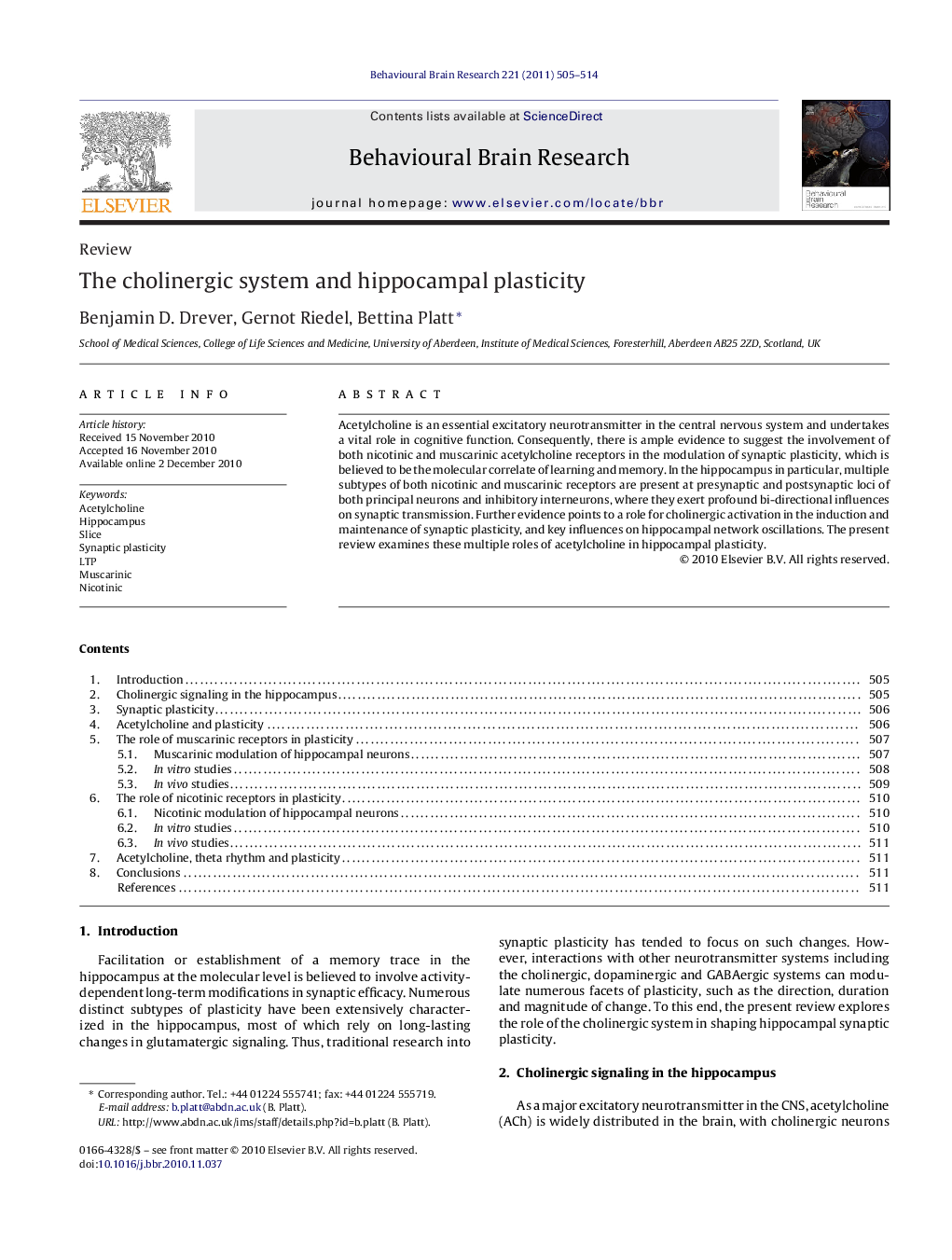| Article ID | Journal | Published Year | Pages | File Type |
|---|---|---|---|---|
| 4313730 | Behavioural Brain Research | 2011 | 10 Pages |
Acetylcholine is an essential excitatory neurotransmitter in the central nervous system and undertakes a vital role in cognitive function. Consequently, there is ample evidence to suggest the involvement of both nicotinic and muscarinic acetylcholine receptors in the modulation of synaptic plasticity, which is believed to be the molecular correlate of learning and memory. In the hippocampus in particular, multiple subtypes of both nicotinic and muscarinic receptors are present at presynaptic and postsynaptic loci of both principal neurons and inhibitory interneurons, where they exert profound bi-directional influences on synaptic transmission. Further evidence points to a role for cholinergic activation in the induction and maintenance of synaptic plasticity, and key influences on hippocampal network oscillations. The present review examines these multiple roles of acetylcholine in hippocampal plasticity.
Research highlights▶ The cholinergic system modulates hippocampal excitability in a bidrectional manner. ▶ Muscarinic and nicotinic receptors, localised pre- and post-synaptically, are crucial for hippocampal signalling, plasticity and cognition. ▶ Induction and maintenance of long-term potentiation as well as network oscillations depend on cholinergic inputs. ▶ Evidence from in vitro and in vivo investigations is reviewed and discussed.
